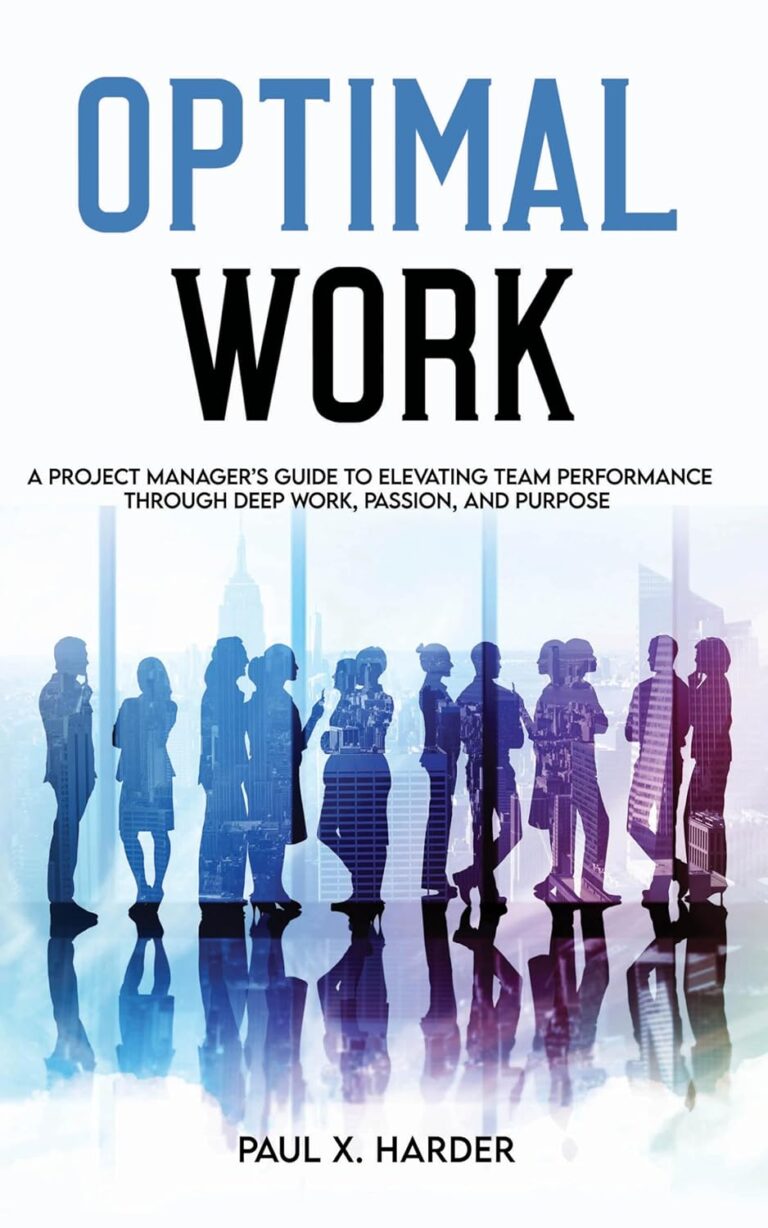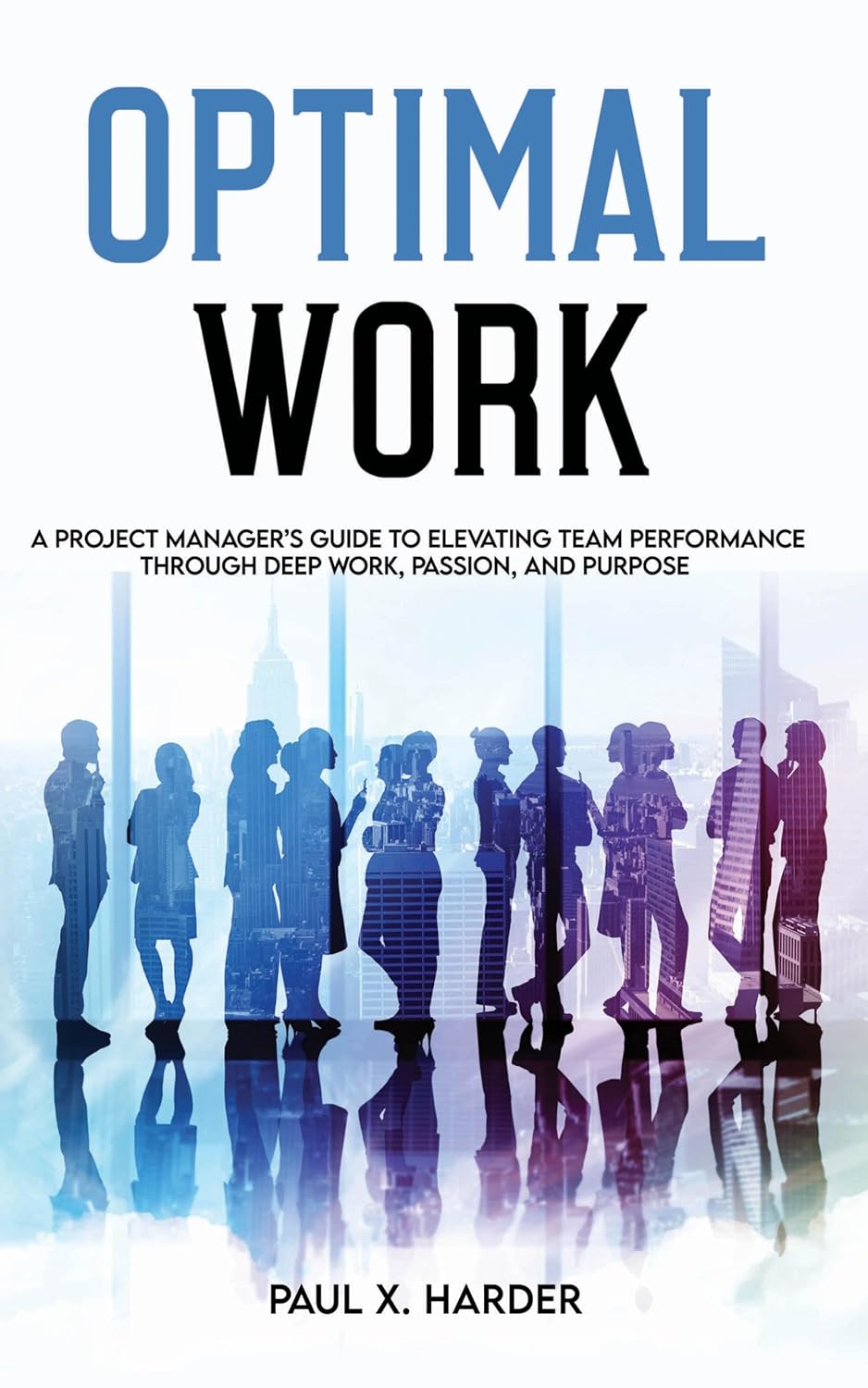Paul X. Harder’s OPTIMAL WORK: A Project Manager’s Guide to Elevating Team Performance Through Deep Work, Passion, and Purpose offers readers a comprehensive and insightful exploration of how to maximize team productivity and satisfaction. Harder draws on over 20 years of experience in project management to deliver a guide that is deeply informed, highly intuitive, and, most importantly, practical.
From the outset, OPTIMAL WORK distinguishes itself with its textbook-caliber approach to the subject matter. Harder systematically breaks down complex concepts into digestible chapters, each building upon the last to create a cohesive framework for project managers. While the book’s structure lends itself to a sequential read-through, its well-organized chapters and comprehensive index make it equally valuable as a “for-future-reference” guide.
At the heart of Harder’s philosophy is Optimal Work, which “takes the concept of flow as a state and incorporates elements of individual and team performance when related to projects or tasks.” The author argues, rather convincingly, that fostering this state is key to not just project success, but also to team satisfaction and personal growth. As Harder states, “Optimal Work project management recognizes that the path to success is rarely a straight line.”
OPTIMAL WORK also tackles head-on the challenges of modern project management, including the perils of constant connectivity and the limitations of traditional productivity metrics. In this regard, Harder advocates for a more holistic view of project success, stating that “Tracking project progress and success must account for more than just speed. The project manager needs to bring in other metrics such as individual well-being, team dynamics, and qualitative progress toward project goals.”
One of the book’s major selling points is the author’s balanced approach to theory and practice. Harder doesn’t just explain the “why” behind Optimal Work principles; he provides concrete strategies for implementation. From creating “Deep Work Sanctuaries” in team schedules to fostering a culture of trust and empowerment, the author offers actionable advice grounded in real-world experience. OPTIMAL WORK also maintains a forward-thinking approach while remaining grounded in timeless principles of effective leadership. The chapter on AI integration in project management, for instance, offers a nuanced take on how emerging technologies can complement, rather than replace, human-centered project management approaches: “AI is Not a Cure-All.”
The wealth of information presented can be overwhelming at times, but Harder maintains a crisp, engaging tone throughout. While leaning a little more on personal anecdotes (which are few and far between) might have added a more relatable touch to the admittedly dry subject matter, Harder clearly values the reader’s time. And considering the topic at hand, delivering a focused, no-nonsense guide that cuts straight to the heart of effective project management feels more than appropriate.
Paul X. Harder’s OPTIMAL WORK: A Project Manager’s Guide to Elevating Team Performance through Deep Work, Passion, and Purpose is an expertly crafted, text-book caliber guide for project managers seeking to boost team performance and engagement. It skillfully balances technical know-how with human-centered approaches to create a comprehensive resource for novice and experienced project leaders alike.
~James Weiskittel for IndieReader


